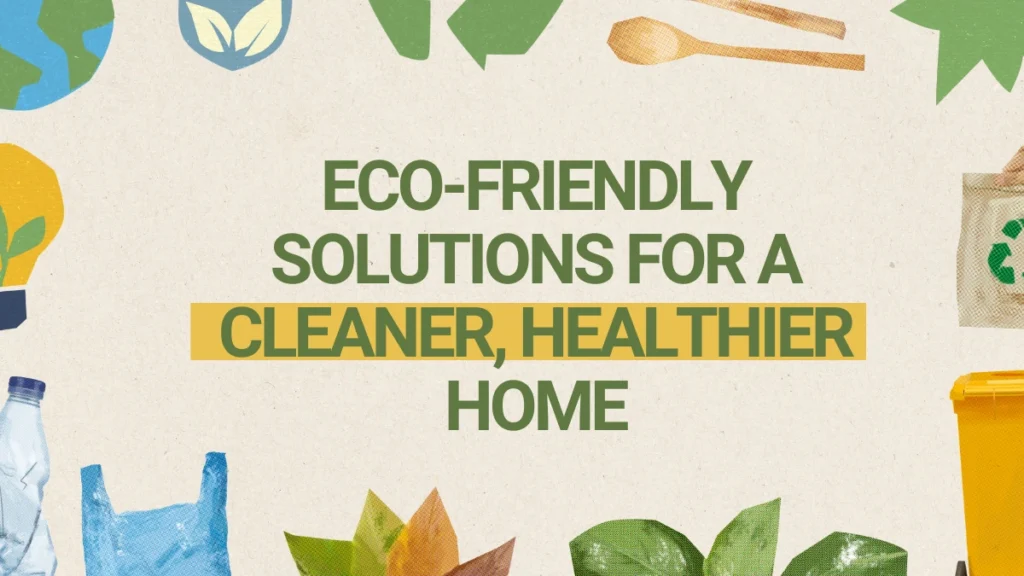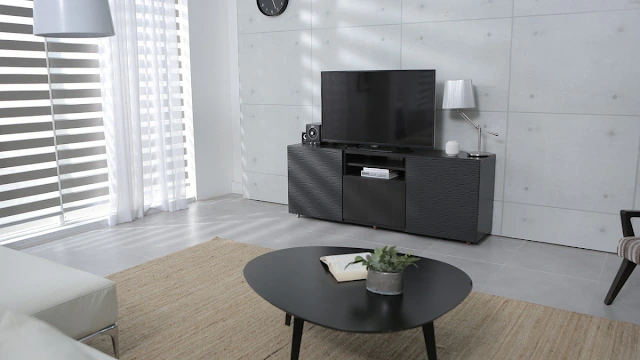
Discover simple steps to create a sustainable and eco-friendly living space. Learn about natural cleaning products, energy-efficient appliances, and water-saving tips for a healthier home and a better planet.
Introduction
In today’s world, where environmental concerns are becoming increasingly important, it’s crucial to adopt sustainable practices in our daily lives. Our homes, being the spaces where we spend most of our time, offer numerous opportunities to reduce our ecological footprint. By implementing eco-friendly solutions, we can create a cleaner, healthier environment for ourselves and future generations.
Kitchen Eco-Friendliness
Sustainable Cleaning Products: Choose natural cleaning agents like vinegar, baking soda, and lemon juice instead of harsh chemical-laden products. These alternatives are not only effective but also safer for your health and the environment.
Reusable Containers: Invest in reusable containers, bottles, and bags to minimize single-use plastic waste. This simple step can significantly reduce your environmental impact.
Composting: Start a compost bin in your kitchen to recycle food scraps and yard waste. Composting not only reduces waste but also creates nutrient-rich soil for your garden or plants.
Energy-Efficient Appliances: When replacing old kitchen appliances, choose energy-efficient models with Energy Star ratings. These appliances consume less energy and help lower your utility bills.
Water Conservation: Install a low-flow faucet in your kitchen sink to reduce water consumption. Additionally, be mindful of running water while washing dishes or rinsing fruits and vegetables.
Bathroom Eco-Friendliness
Natural Toiletries: Switch to natural personal care products made from plant-based ingredients. Avoid products containing harmful chemicals that can pollute waterways.
Water-Saving Fixtures: Replace old showerheads and faucets with water-saving models. These fixtures can reduce water consumption significantly without compromising your comfort.
Reusable Towels: Choose reusable towels instead of disposable paper towels. This simple change can reduce waste and save money.
Natural Cleaning Products: Use natural cleaning agents like vinegar and baking soda in your bathroom to avoid harsh chemicals.
Toilet Tank Displacement: Install a toilet tank displacement device to reduce the amount of water used per flush.
Bedroom Eco-Friendliness
Natural Bedding: Choose natural bedding materials like organic cotton, bamboo, or linen. These materials are hypoallergenic, breathable, and better for the environment than synthetic fabrics.
Energy-Efficient Lighting: Replace incandescent light bulbs with energy-efficient LED bulbs in your bedroom. LED bulbs consume less energy and last longer.
Unplug Electronics: When not in use, unplug electronics like chargers, alarm clocks, and fans. These devices can consume energy even when turned off.
Ventilate Regularly: Open your bedroom windows regularly to improve air quality and reduce the need for air conditioning.
Declutter and Donate: Regularly declutter your bedroom and donate unwanted items. Reducing clutter can create a more peaceful and organized space.
Living Room Eco-Friendliness
Energy-Efficient Heating and Cooling: Invest in energy-efficient heating and cooling systems to reduce your carbon footprint and lower your utility bills.
Natural Lighting: Maximize natural light by keeping windows clean and curtains open during the day.
Indoor Plants: Add indoor plants to your living room to improve air quality and create a more inviting atmosphere.
Sustainable Furniture: When purchasing new furniture, consider sustainable options made from recycled materials or renewable wood.
Conscious Consumption: Be mindful of your consumption habits and avoid unnecessary purchases. Choose quality items that will last longer.
Laundry Room Eco-Friendliness
Energy-Efficient Washing Machine: Choose an energy-efficient washing machine with a high efficiency (HE) rating. These machines use less water and energy.
Cold Water Washing: Wash your clothes in cold water whenever possible. Cold water washing can save energy and help preserve the color and fabric of your clothes.
Line Drying: Hang your laundry outside to dry whenever the weather permits. Line drying is a natural and energy-efficient way to dry clothes.
Natural Laundry Detergent: Use natural laundry detergent made from plant-based ingredients. Avoid detergents containing harmful chemicals.
Reduce Waste: Avoid using dryer sheets, as they can release harmful chemicals into the air. Instead, add a few drops of essential oil to your dryer to freshen your clothes.
Outdoor Eco-Friendliness
Sustainable Landscaping: Choose plants that are native to your region and require minimal watering. This can help conserve water and support local ecosystems.
Composting: Compost yard waste like leaves, grass clippings, and small branches to create nutrient-rich soil for your garden.
Rainwater Harvesting: Collect rainwater for use in your garden or for household purposes. This can help reduce your reliance on municipal water.
Reduce Pesticide Use: Minimize the use of pesticides and herbicides in your garden. Opt for natural pest control methods or organic alternatives.
Energy-Efficient Outdoor Lighting: Use solar-powered or LED lights for outdoor lighting to reduce energy consumption.
FAQs: Eco-Friendly Cleaning Solutions For Home
What are the benefits of using natural cleaning products?
Natural cleaning products are safer for your health and the environment.
They are often less expensive than commercial cleaning products.
They can be made at home with simple ingredients.
How can I reduce my energy consumption at home?
Replace old appliances with energy-efficient models.
Use energy-efficient light bulbs.
Unplug electronics when not in use.
Insulate your home to reduce heat loss.
What are some eco-friendly alternatives to single-use plastics?
Use reusable containers, bottles, and bags. Choose glass or metal containers instead of plastic. Avoid single-use plastic items like straws, cutlery, and coffee cups.
How can I reduce my water consumption at home?
Install water-saving fixtures like low-flow shower heads and faucets.Fix leaky faucets and pipes.Take shorter showers.Use a rain barrel to collect rainwater for gardening.
What are some eco-friendly landscaping tips?
Choose plants that are native to your region.Minimize the use of pesticides and herbicides.Install a rainwater harvesting system. Mulch your garden to help retain moisture.
Read More
https://cleaningview.ca/eco-friendly-tips-for-cleaning-your-powder-room/
Important: The information provided here in the post is for general informational purposes only. It should not be taken as professional or any other type of advice. Always seek the advice of a qualified professional before implementing this information on your own. Thank you!
Add CleaningView To Your Google News Feed



